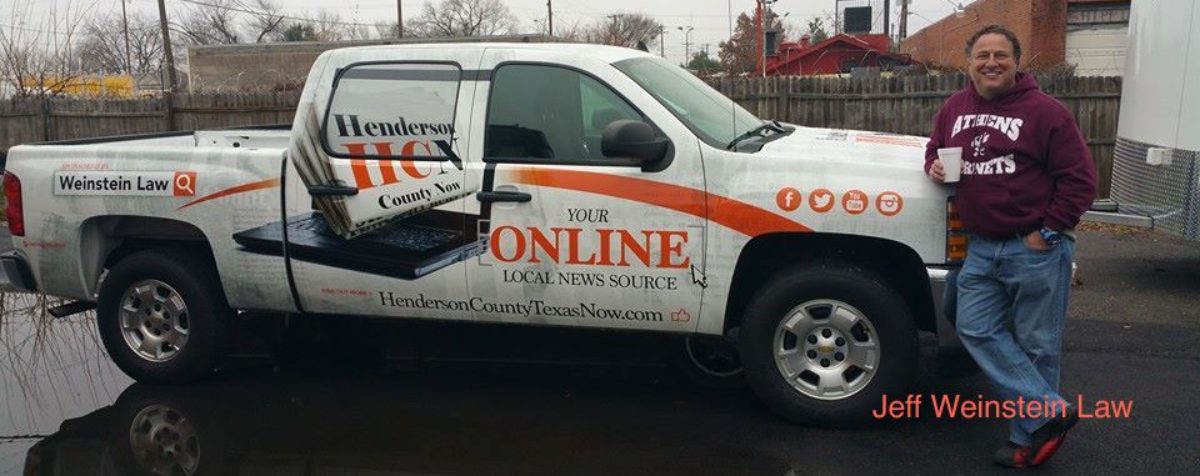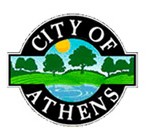Currently, all seven of the city’s water storage tanks are out of compliance with the state.
A Texas Commission on Environmental Quality (TCEQ) inspection this year cited the interior of all four City of Athens elevated water tanks, warning the City for a “failure to maintain.”
The four elevated tanks include Royal Mountain, North Loop, SH 19, and Faulk Street. The inspection was conducted in April with the report completed in June.
The report documents issues including, but not limited to, peeling paint, severe rust and moderate sediment. In addition, the North Loop tank was noted for “severely rusted support brackets (in some cases the bracket was no longer attached to the tank).”
The report also notes that the Faulk Street tank “was already documented as an alleged violation in 2011,” and the state agency has it on its Regional Compliance Plan with expectations that it would be fixed by the end of 2015.
Violations in 2011 also landed the City’s ground storage tanks at Lane Street, Faulk Street and Scott Street on the Regional Compliance Plan with a deadline date of December 2015.
The two men now responsible for dealing with the tanks are City Administrator Philip Rodriguez and Interim Public Works Director Gordon Mayer, who both joined the City in 2015. Rodriguez was hired in April and Mayer earlier this month.
Basically, they are playing catch up when it comes to this issue.
Not A Water Safety Issue
When talking about the tanks, Rodriguez and Mayer were both quick to point out that Athens water is safe.
“People should have confidence in our water quality, because we just generated a water quality report this month,” said Rodriguez.
“We don’t have any issues in terms of water quality,” he said later. “We do have some issues as far as long-term maintenance to address, but the water quality is very solid and is very safe. That is regulated by the same group, the TCEQ, that brings forth any notices about violations of the infrastructure.”
In addition, Mayer said there is a program in place where the City samples the water every month from 20 to 30 locations and has the samples tested by the state.
“Our water quality is good,” he said.
What this is, however, is a warning that the City’s maintenance is not current.
“This is something that we have to address. It is not something that is a health issue at the moment,” said Mayer.
The Fix is Scheduled
Rodriguez said one of the first things he discussed with Mayer this month was the TCEQ violations notice.
“He (Mayer) responded in full to everything that is in there,” said Rodriguez, “and we are budgeting for everything that was brought up in there as well.”
The good news is that work has already begun on the ground storage tanks. Cold water tanks do need regular maintenance and so, it is good that they are on it now.
As for the elevated tanks, that’s where the increase in water rates scheduled to take effect on Sept. 1 comes in to play. The increase will average about $20 a month for most residential customers.
Part of that rate increase will fund a capital improvement program which includes money to recondition the four elevated tanks, one each year for the next four years.
“Funds for that were included in the (new rates),” said Mayer. “We have included funds in the upcoming budget for the first tank.”
This is a Budget Issue
Which brings up the real issue: Money.
Mayer said that painting and maintaining the inside of the tanks should be routine maintenance scheduled every five to seven years. Regular repainting of an elevated tank, however, costs between $200,000 and $300,000 and takes about three months.
With the current status of the tanks, Mayer warns the price could go up.
“Now we may be running into a situation, with the rust and corrosion, where the repairs will cost us more,” he said.
Rodriguez said the issue is compounded by the fact that it is all of the tanks at once.
“We don’t have the luxury of kicking the can down the road on any of these projects,” said Rodriguez. “We are going to be very intentional about responding to the issues that we are aware of, and finding and addressing issues in the future so that we make these things very routine maintenance rather than they hit us all at one time.”
Rodriguez believes the right steps are being taken.
“This council right now understands the gravity of this and has put together that rate structure for this fall,” he said. “We as staff understand we really only have one option at this point, and that is to address the issues and that’s the way we are going to tackle it.”
Mayor Jerry Don Vaught said part of the reason for the city getting behind was a delay in getting a new rate study. The City’s water rates haven’t increased since 2012.
“Due to the cost factor involved with maintaining the water tanks, the City felt it was important for a utility rate study to be done to ensure the money was there for the repairs,” Vaught said. “Unfortunately, the rate study was delayed in prior budget years, with part of that resulting from the uncertainty of the relationship between the City and (the Athens Municipal Water Authority) at the time. This past winter, the rate study was completed and all necessary projects identified by TCEQ will be addressed in future budgets, beginning with the one council will be adopting later this summer.”

